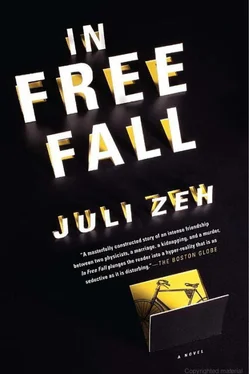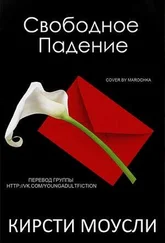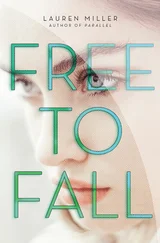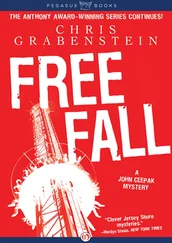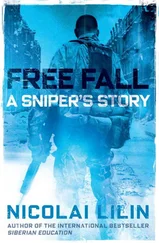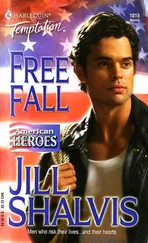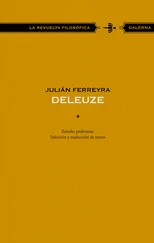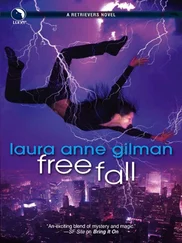IT IS JUST AFTER TWELVE. Sebastian hangs the tea towel on the hook and walks over to the balcony door. The sun has risen over the ridge of the roof, and casts a rectangle of light between the trees in the courtyard. A cat parades over the cobblestones, lies down on its side, and stretches one leg in the air to clean itself. The scene is simple and clear; the trip into town has done Sebastian good. But he is no nearer to his goal of coming up with a proper plan. Every imagined attempt to approach Dabbelink ends in fiasco. At least he feels no pity when he thinks of Dabbelink—only hatred. It seems to him that Dabbelink is, in some secret fashion, responsible for all of this. Sebastian is wary of this very useful conception on moral grounds. He is also happy that Dabbelink has neither wife nor children—not out of human kindness, but for logistical reasons.
He pulls open all the kitchen drawers for the third time, and also opens the little cupboard under the sink.
Bread knife and kebab skewers. A corkscrew and a potato masher. A hammer.
Although Sebastian knows that human beings like killing, he has never thought the process would be simple. He is annoyed by TV films in which a distraught woman reaches for the fallen pistol on the floor and kills her attacker with one clean shot to the head, despite the recoil and a lack of weapons training. The way Sebastian sees it, normal people can perhaps operate a gun, but will never hit their target. Normal people handle a variety of possible murder weapons every day—parcel string, plastic bags, rolling pins, not to mention kebab skewers (have these ever actually been used?)—but still wouldn’t know how to employ them in order to kill.
Ethyl alcohol. Insecticide.
Sebastian seriously considers getting a professional to do the job. It would be simple for an anesthetist to get the necessary drug, then ring Dabbelink and tell him some cock-and-bull story. They would meet at his house for the handover. They would clink glasses of red wine. With luck, it would look like suicide.
Pastry fork. Duct tape. Poultry shears.
Right at the back is an old bottle without a label, filled to the brim with a clear fluid. Sebastian opens it and sniffs. Nothing. Absolutely, markedly nothing.
His mother had always kept the distilled water for ironing high up on a shelf in the laundry room. If you were to drink it, the dead water would seep into your cells, bloat them, and make you explode. A cool wind touches the back of Sebastian’s neck. Dabbelink’s racing bike is kept in the shelter in front of the cycling club. Two water bottles are beneath the saddle.
When Oskar was asked about his methods at the university, he replied that the art of thinking did not lie in finding the answers, but in teasing answers from the questions. Perhaps, Sebastian thinks, the human being is also a problem that carries his solution within him. Perhaps that is what those who study the humanities call fate. A machine, like Dabbelink, has to die cycling.
Bent over the computer keyboard in the study, Sebastian cannot stop thinking about Oskar. Oskar in the full glory of his infallibility. Perhaps he, too, would be unable to come up with a way out of this straight off, but he would know how to rise above by force of intellect. For a moment, Sebastian feels ashamed of wanting Oskar’s support at this of all times. Then he found the right article on the Internet. Contrary to popular wisdom, drinking distilled water is safe. Some health fanatics even consider it good for you as it is sterile. Sebastian reads the article as if it is his own death sentence.
Immediately after this, he is sitting at the kitchen table once again, head buried in his hands. He is a physicist, not a chemist, and certainly not a criminal; he is probably not even very practical minded. They have chosen the wrong man. For a frenzied half hour, he imagines an alternative past peppered with if-onlys. If only he had not set his heart on a couple of weeks of undisturbed work. If only he had not immersed himself in useless theories. If only he had used his time with Maike and Liam fully and wrung every bit of happiness out of it. Now he is being punished for his inattention.
When he stands up to get a glass out of the cupboard, his spine bears the memory of his tensed posture. The distilled water tastes of nothing, a liquid corpse. Sebastian suppresses his revulsion and drinks. After the second glass he is able to cry. He drinks a third, and his tears flow into his collar. The sound of crockery rattling in the apartment below comes through the open balcony door, marking the boundary beyond which an alien everyday is progressing relentlessly. If it were within his power to do so, Sebastian would silence the clinking plates, the hands that are stacking them, the twittering of the birds, the distant grumble of car engines, and the entire, bright harlequin world outside with a single blow.
As he stands there motionless, letting his damp cheeks dry naturally, enjoying the brief moment of peace after his outburst, his exhausted brain tosses forth something else Oskar has said. For you, my diligent friend, thinking is hard labor. A solution that is obvious the moment it springs to mind is best .
Sebastian leaves the apartment and walks down the stairs to the cellar, where his seldom-used tools are kept.
SEBASTIAN HAD NOT NEEDED THE MOBILE PHONE alarm to wake him up. He had not taken his eyes off the clock on the dashboard. The Volvo is parked on a track in the woods. Darkness has turned the bored pine trees into a wall. When Sebastian leans forward he can see the shaft of Ursa Major against a little patch of sky. He has always thought that this constellation ought to be replaced with a new and more interesting one. When he opens the car door, the smell of the forest hits him: plants that suck up nourishment from the rotting wastes of past generations. His foot lands on springy subsoil, a contact so natural that the next movement follows from it. Sebastian takes the rucksack out of the trunk and sets off.
A forest considers various processes going on in it to be perfectly normal. It does not strike Sebastian as odd to be climbing a mountain away from the road at half-past three in the morning. He can concentrate entirely on not stumbling over tree roots, carefully untangling thorny blackberry branches from his sleeves, and fighting the fatigue that is tempting him to lie down on the cool ground and see in the break of day peacefully. When he reaches the edge of the forest, the night has already withdrawn between the tree trunks. Dawn is breaking over the broad, grass-covered hollow high above, which is hugged by the Schauinsland road. A cow raises its head, and turns back to its endless munching when Sebastian lays a finger on his lips. He climbs through the barbed wire and keeps a respectful distance from the animals. Just as he has crossed the meadow in a diagonal line and entered the cluster of trees opposite, sun slants across the crevice between the tops of two mountains. The air is clear as glass, casting every contour into sharp relief. Every tree is an individual, every pebble is in its right place. Shafts of light pierce the patches of even ground. Grass grows wherever there is room. Insects circle over sunny patches. From a distance come the workshop noises of a woodpecker. All creation belongs to the animal world at this time of day, and every man is like the first or last on earth.
Sebastian has already walked this route during the dress rehearsal, no more than three hours ago. But knowing the ground does not make the final leg any less difficult. There are dead branches to stumble over everywhere and thick undergrowth that forces him to make detours. Sebastian has to use his hands to help him up the steepest inclines. After five hundred meters he is soaked with sweat and sits down on a tree stump to rest. He has barely taken off his jacket and tied it around his waist when the midges land on his arms: three on the left and seven on the right. He slaps them dead but the swarm is instantly replaced. Hundreds of midges dance around him jostling for position, landing and sticking their nozzles into his skin. Only female midges bite, Oskar once told him on the bank of Lake Geneva. Females fight, feed, and sting. That is why “ant,” “wasp,” and “midge” are all feminine in German. Sebastian squashes the tiny bodies between his hands, mixing them with his own blood.
Читать дальше
